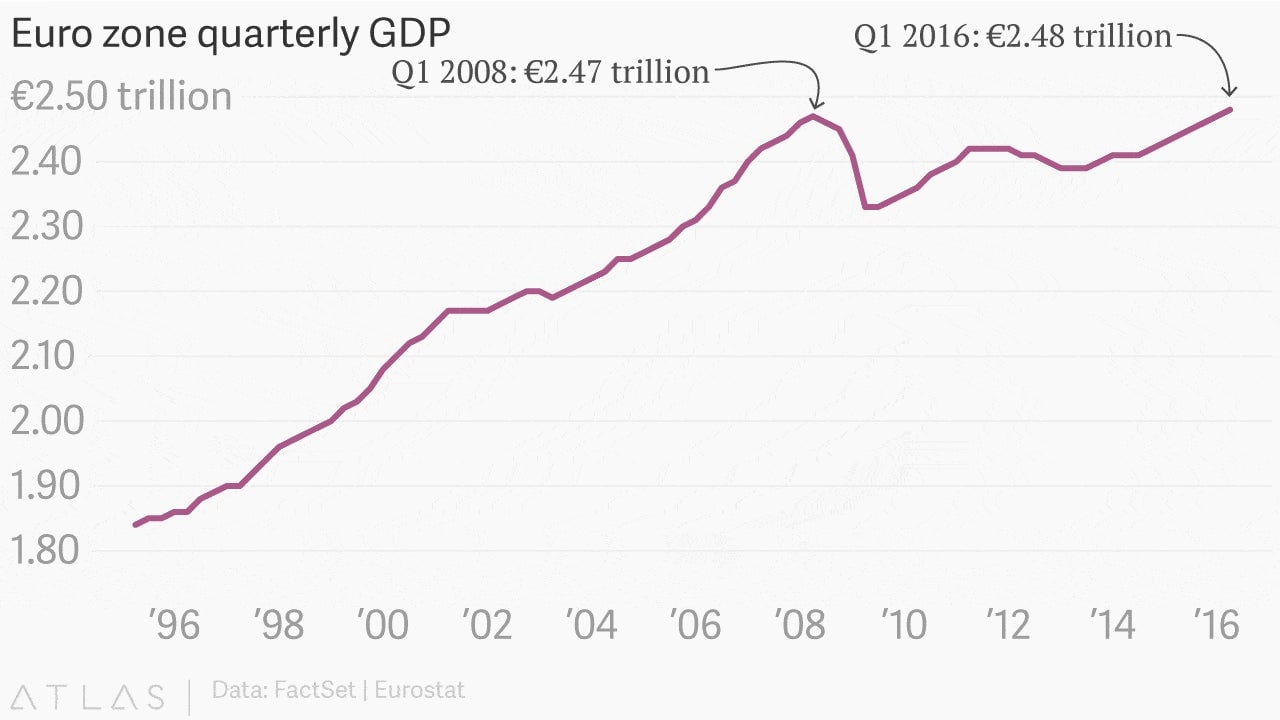Europe has emerged from the smoldering crater that was once its economy
Remember Europe? Me neither!

Remember Europe? Me neither!
But from what I hear, it’s a nub of land dangling off the Eurasian landmass, with a bunch of picturesque castles and a never-ending debt crisis.
We kid, because we love. But Europe’s inability to deal conclusively with what started as a debt crisis in Greece and grew to threaten the stability of the single-currency union has made the continent a persistent headwind for global economic growth, for the better part of a decade.

Case in point, the 19-nation euro zone only just retook economic territory that it last saw in 2008. During the first three months of 2016, the GDP of the monetary bloc reached €2.48 trillion ($2.84 trillion), overtaking the previous high of €2.47 trillion, which was reached in the first three months of 2008, according to preliminary data released today (April 29).
The IMF expects the euro area will grow by about 1.5% in 2016, down from 1.6% in 2015. That’s not blockbuster growth, but it’s heartening—especially considering that Europe (including portions of the continent outside the monetary block) represents about 17% of world GDP, according to the IMF.